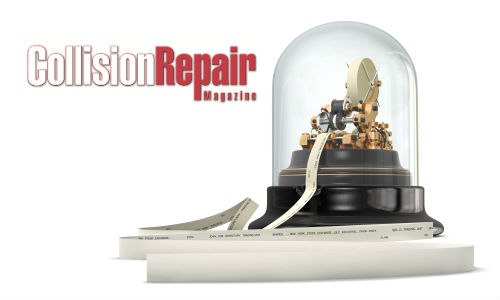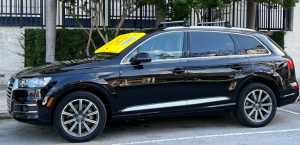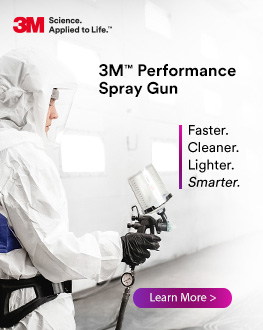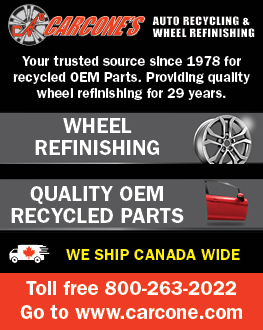The new NAFTA
On Thursday, the U.S. Senate approved alterations to the 26-year-old North American Free Trade Agreement (NAFTA), which now includes tougher labour and automotive content rules.
The legislation—which was approved by the House on Dec. 19—was presented to Senate last Thursday, where it was passed on an 89-10 bipartisan vote, sending the measure to President Donald Trump for final signing.
The new pact—known as the United States-Mexico-Canada Agreement, or USMCA—was first agreed upon in Sept. 2018 and will replace the 1994 NAFTA. For years, Trump has vowed to either quit or renegotiate NAFTA, which he blames for the loss of millions of U.S. factory jobs to low-wage Mexico.
The biggest changes to the deal require an increase in North American content in vehicles built in the region. With the NAFTA deal, 62.5 percent of steel and aluminum had to be from a North American source; with the new deal, 75 percent of aluminum and steel used in North American vehicles must be sourced from the region.
In addition, 40 percent to 45 percent of vehicle content must come from high-wage areas paying more than $16 an hour—namely in the United States and Canada.
Fourth-quarter fall
PPG released its fourth-quarter earnings last week, falling short of Wall Street estimates to report earnings of US$292 million, or US$1.23 a share.
Wall Street analysts had predicted prices of US$1.34 per share but, even after adjusted earnings, PPG missed the Street’s mark by three cents to report adjusted earnings of US$1.31 per share.
Sales volume declined nearly three percent compared with the prior year, while unfavourable currency translation hurt net sales by about one percent, or about US$30 million, and acquisition-related sales, net of divestitures added nearly three percent to net sales.
Revenue edged up 0.7 percent to US$3.67 billion in net sales for the fourth quarter, matching the Wall Street forecast as calculated by FactSet.
“As the quarter progressed, industrial demand began to stabilize in China, but remained challenged in Europe and the U.S.,” Michael H. McGarry, chairman and CEO, said in a statement.
For 2020, PPG has called for adjusted-earnings-per-share growth of between four and nine percent, excluding the impact of currency translation.
Indulgent investment
Canadian billionaire Lawrence Stroll is emerging as the frontrunner to buy a stake in luxury automaker Aston Martin, as interest from rival Chinese investor wanes, reports say.
Stroll—a billionaire businessman, part-owner of the Racing Point Formula 1 team and collector of vintage Ferraris—has reportedly been discussing a potential investment with the company.
As other investors begin to step back from the potential investment, Stroll is reportedly considering injecting £200 million (US$261 million) in the British automaker, Bloomberg News reported.
The discussions come shortly after Aston Martin confirmed it was in early-stage talks with potential investors as it launched a review of funding.
Further, in early January, the automaker warned its 2019 profits would fall by almost half due to weak European markets.
No final agreements have been reached.
Sustainable supplier
Axalta was recently recognized as a Top 50 Best Environmental, Social and Corporate Governance (ESG) company by Investor’s Business Daily for its commitments to environmental sustainability.
To create its Top 50 Best ESG Companies list, Investor’s Business Daily considered environmental, social and governance factors alongside financial factors in the decision-making process. The recognized companies have the highest ratings, reflecting broad strength in fundamental and technical areas linked to price performance.
Recent Axalta products said to demonstrate the company’s committment to sustainability include: Axalta’s Fast Cure Low Energy patented technology, which is said to cut application process times by up to 50 percent while reducing energy consumption by up to 79 percent; the Voltatex 4224 impregnating resin, said to deliver improved thermal conductivity while simultaneously enabling higher motor efficiency and reduced size and weight of electrical devices; and the AquaEC 6000 series of waterborne electrocoats used in automotive and industrial applications, which is said to provide corrosion protection while minimizing volatile organic compound (VOC) emissions.
Axalta’s AquaEC 6000 series is also said to reduce energy use through lower curing temperatures.
“We are proud to be recognized for our innovative products and services, safe and sustainable manufacturing process and strong corporate governance practices,” said Robert Bryant, president and CEO of Axalta. “Today, there are many socially responsible investors who are keenly aware of the environmental, social, and corporate governance practices of companies and make their investment decisions based on these important ESG factors. They view it the same way we do; it’s good business and it’s good for the world we live in.”
In addition, Axalta Bright Futures, the company’s corporate social responsibility programme, supports science, technology, engineering and math education and environmental stewardship initiatives. The programme is designed to make the world a better place and improve the well-being of cities, towns and communities where Axalta’s employees and customers live, work and play.





































